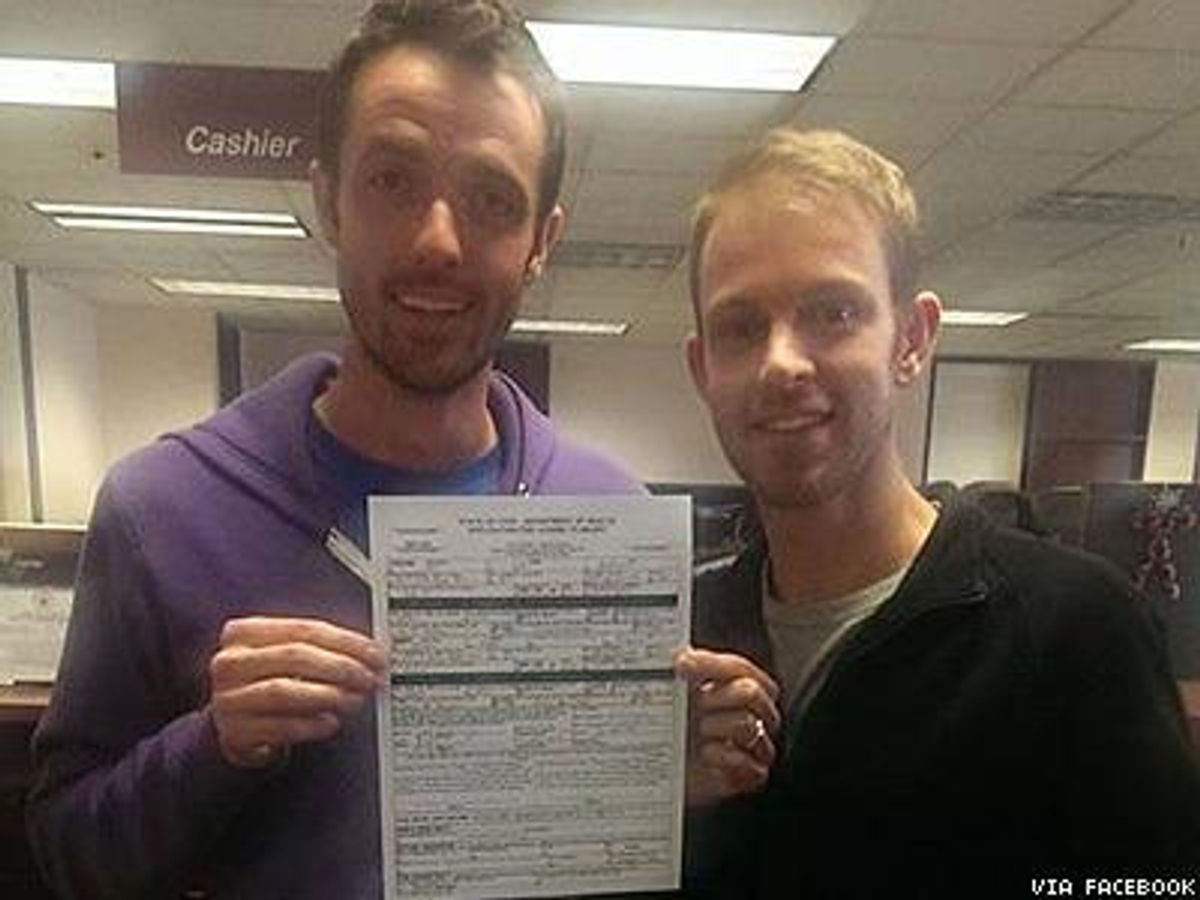A federal judge declared Utah's ban on same-sex marriage unconstitutional today, ordering that marriage equality be enacted in the state immediately. There is no stay on the order, meaning gay and lesbian couples can now apply for marriage licenses in Utah, though it's possible the decision could be appealed.
Federal district judge Robert J. Shelby struck down Utah's voter-approved constitutional amendment forbidding marriage equality in the Friday decision, ruling that Amendment 3 is "is unconstitutional because it denies the Plaintiffs their rights to due process and equal protection under the Fourteenth Amendment of the United States Constitution."
The challenge was brought by three same-sex couples, Derek Kitchen and Moudi Sbeity, Karen Archer and Kate Call, and Laurie Wood and Kody Partridge, who either wished to be married in Utah or were legally married elsewhere and wanted their home state to recognize their marriage, according to the American Civil Liberties Union of Utah.
"Applying the law as it is required to do, the court holds that Utah's prohibition on same- sex marriage conflicts with the United States Constitution's guarantees of equal protection and due process under the law," reads the decision. "The State's current laws deny its gay and lesbian citizens their fundamental right to marry and, in so doing, demean the dignity of these same-sex couples for no rational reason. Accordingly, the court finds that these laws are unconstitutional."
Shelby's ruling was unequivocal in its reasoning for extending the freedom to marry to all Utah citizens, frequently citing the U.S. Constitution's promise of equal protection under the law, and outright rejecting the baseless argument that marriage equality somehow harms the institution of opposite-sex marriage.
"The State of Utah has provided no evidence that opposite-sex marriage will be affected in any way by same-sex marriage," wrote Shelby. "In the absence of such evidence, the State's unsupported fears and speculations are insufficient to justify the State's refusal to dignify the family relationships of its gay and lesbian citizens. Moreover, the Constitution protects the Plaintiffs' fundamental rights, which include the right to marry and the right to have that marriage recognized by their government. These rights would be meaningless if the Constitution did not also prevent the government from interfering with the intensely personal choices an individual makes when that person decides to make a solemn commitment to another human being. The Constitution therefore protects the choice of one's partner for all citizens, regardless of their sexual identity."
"We're glad that the court has ruled against this discriminatory law," said John Mejia, legal director of the ACLU of Utah. "This law only serves to deny loving and committed couples the protection and dignity that only comes with marriage. We congratulate the brave couples who brought this challenge and their legal team."
Utah is now the 18th state in the U.S., to extend legal marriage rights to same-sex couples.



















































































